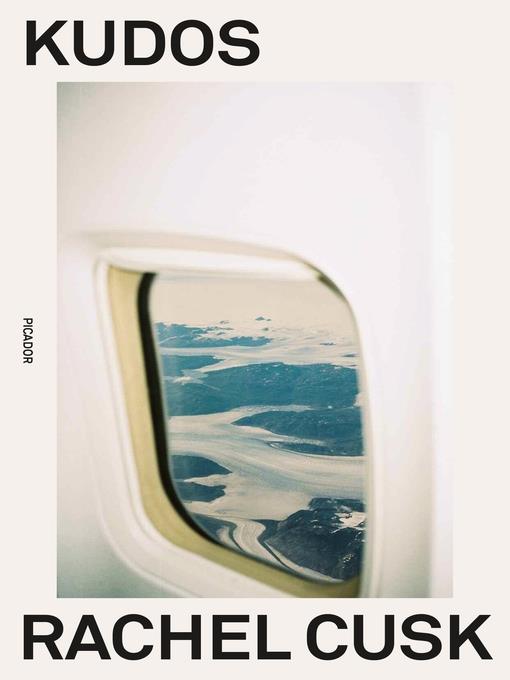
Kudos
Outline Trilogy, Book 3
کتاب های مرتبط
- اطلاعات
- نقد و بررسی
- دیدگاه کاربران
نقد و بررسی

March 15, 2018
Brexit provides the sociopolitical background for Cusk's existential investigation into the nature of freedom and the construction of identity, the concluding volume to her brooding trilogy begun with Outline (2015).Narrator Faye has married again since her excursions in Transit (2017), but almost everyone she meets at a literary festival in an unnamed European country is either bitterly divorced or painfully ambivalent about family life. Even pets become the source of power struggles with spouses and children in some of the seething personal narratives people share with Faye. Cusk also paints a sardonic portrait of the literary life via the monologues of a philistine salesman-turned-publisher, a first novelist disenchanted by a pretentious writers' retreat, and an arrogant journalist who's supposed to be interviewing Faye but barely lets her get a word in. Despite the brilliantly detailed descriptions of these characters and the locations through which they uneasily pass, this is not conventionally naturalistic fiction; conversations reveal unrecorded lapses of time within the narrative, and people examine their experiences in highly abstract language not intended to reproduce vernacular speech. Physical reality is as mutable and subject to question as the identities people carefully create and then later reject. One man, who connects his new success as an author with the radical loss of half his body weight, speaks for many when he concludes that, "The person he'd always been...lived in a prison of his own making." Many of the broken marriages described were shattered by one partner's desire for freedom, but that too may be an illusion: "When they thought they were free," says one man of some friends, "they were in fact lost without knowing it." Faye's tender telephone exchanges with her two sons remind us there is love in the world, too (though we never learn more about her new marriage than that it exists). Nonetheless, a jarring and ugly final scene confirms an overall impression that Cusk's views of human nature and personal relationships are as bleak as ever.Brilliantly accomplished and uncompromisingly dark.
COPYRIGHT(2018) Kirkus Reviews, ALL RIGHTS RESERVED.

Starred review from April 2, 2018
Cusk’s final book in a trilogy (after Outline and Transit) expertly concludes the story of protagonist Faye, a British author, as she travels Europe to speak at writers’ conferences and give interviews. Since the events of the previous book, Faye has remarried and her sons have grown into teenagers, one of whom is preparing to leave for university to study art history. Yet the novel, like its predecessors, eschews chronicling Faye’s life via traditional narrative, instead filling each page with conversations with and monologues by the many writers, journalists, and publicists she meets during her travels. Shifting away from the last book’s focus on life’s journey, Cusk now places Faye in a series of back-and-forths on duality in family, art, and representation. In Germany, Faye talks to an interviewer about jealousy. Later, a young tour guide explains his thoughts on education, gender, and rewarding intelligence (it is here where the novel receives its title); at another stop, Faye is audience to a series of journalists who discuss honesty and workplace inequality. As always, Cusk’s ear for dialogue and language is stunning. The author ends Faye’s trilogy with yet another gem.

Starred review from May 1, 2018
In this final book in the Outline trilogy (Outline, 2015; Transit, 2017), Cusk's seemingly invisible protagonist, Faye, is attending a literary conference in Germany. There she describes settings and conversations in great detail, but as the conference draws to a close, we find that once again she herself has had little to say. Those who interview her have come with their impressions already formed, or with so much of their own lives to convey, Faye's story?her remarriage, the nature of her recent work, the new security in her relationships with her sons?remains hidden, waiting for readers to discover it between the lines. Cusk starkly contrasts Faye's new personal evolution with the anonymous, dispirited writer we met at the series' start, but she is surrounded by repeating tales of bitter divorces, physical tragedies, and career strains. Set against the political backdrop of Brexit, Cusk's dramatization of the ongoing struggle for feminine identity in a traditional and patriarchal world is burdensome and bleak, even as rare moments of tenderness shine through. Brilliantly aware without being indulgent or preachy, this novel has the intense beauty of form that has marked Cusk's trilogy from the beginning, and the final installment does not disappoint.(Reprinted with permission of Booklist, copyright 2018, American Library Association.)

January 1, 2018
Granta Best Young British Novelist Cusk completes the trilogy begun with Outline and Transit, which features a penetrating but elusive woman writer. Here she visits a Europe in turmoil, where people are troubled about who they are, what their nation stands for, and how to distinguish between truth and outward, publicly sanctioned appearance.
Copyright 2018 Library Journal, LLC Used with permission.

























دیدگاه کاربران